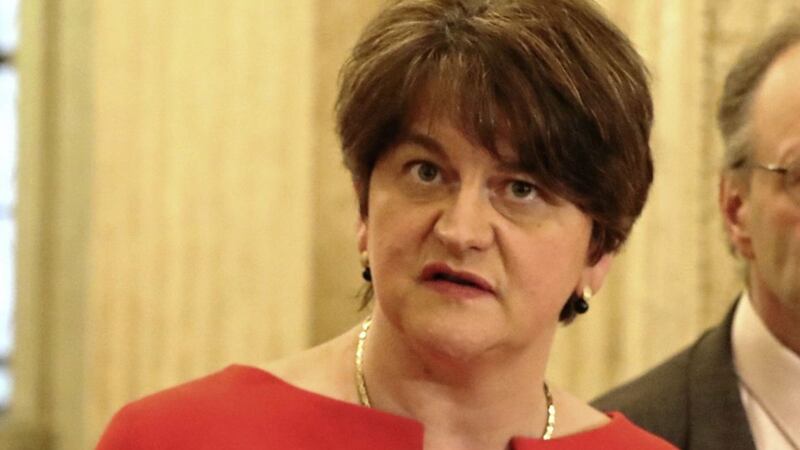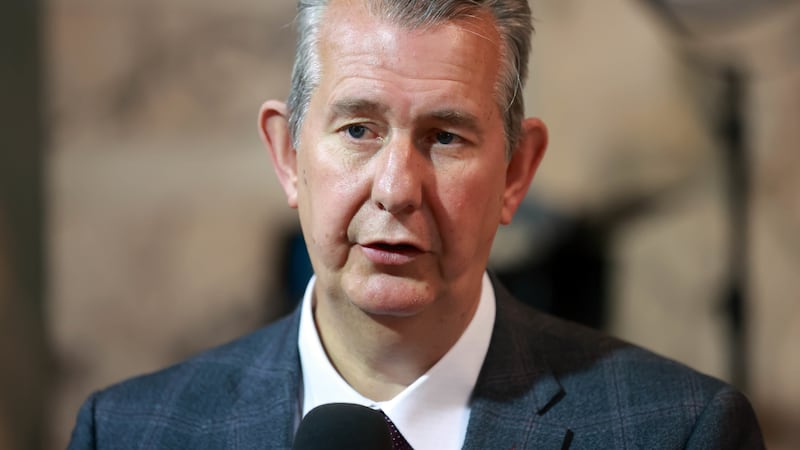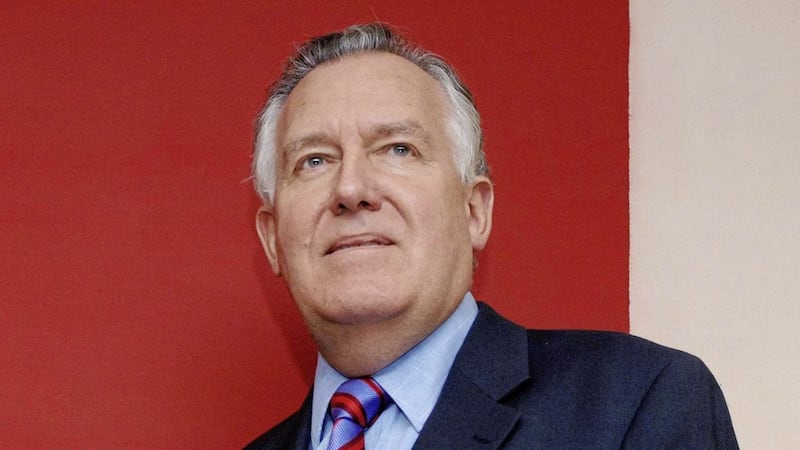FORMER first minister Arlene Foster aims to try and create "space for civil debate without the drama" in her life away from frontline politics.
Writing a blog as part of the Linen Hall Library's 'extraORDINARYwomen' project, the former DUP leader turned GB News commentator, who famously likened Sinn Féin to a hungry crocodile, outlines some of her plans for the months and years ahead.
Mrs Foster joins former Women's Coalition leader Monica McWilliams, ex-Alliance MLA Anno Lo and Geraldine Finucane, the wife of murdered lawyer Pat Finucane, in contributing to the Belfast city centre library's extensive collection of memorabilia, interviews, posters and ephemera donated to the "community-driven heritage project" exploring the changing and developing roles and attitudes of women from 1965, through the Troubles to the present day.
In her blog about what she plans to do next, Mrs Foster says she is "steeped" in Northern Ireland and what she terms its "difficult politics".
Mrs Foster recalls an event she attended in London in 2018, chaired by the ex-head of the Equality and Human Rights Commission Trevor Phillips.
She says it was attended by people from across the political spectrum – "and that’s the important point – people from different perspectives discussing issues in a civilised fashion".
"Unfortunately, the language in Westminster politics is not improving because as I write this blog the deputy leader of the Labour Party, Angela Rayner has just called the Tories, ‘scum' – not much progress there," she writes.
Mrs Foster goes on to recall how she was criticised when she "shared an office" firstly with Martin McGuiness and then Michelle O’Neill.
She says it was important to recognise common ground and to build on it... "trying to deal with areas where we had fundamental differences in a way that did not do damage to the system of government given to us by the Belfast Agreement".
"In other words, I was trying to show that politics worked not the alternative which I had grown up with," she says.
The former Fermanagh-South Tyrone MLA argues that the prevalence of social media in the political discourse means "not even subtle points are lost in translation – I really regret that".
She says the mainstream broadcast media is "becoming just as bad with their soundbite headlines" and argues that the north needs "nuance and understanding in its politics" but that social media undermines this.
"We need a little less Twitter and a lot more thought and direct conversation. There may then be a little less outrage – I can but hope," she says.
"So, in answer to the question, 'What are you going to do next?', the answer is partly at least to try and ensure there is a space for civil debate without the drama and sometimes the hatred which is all too often a mark of social media."








